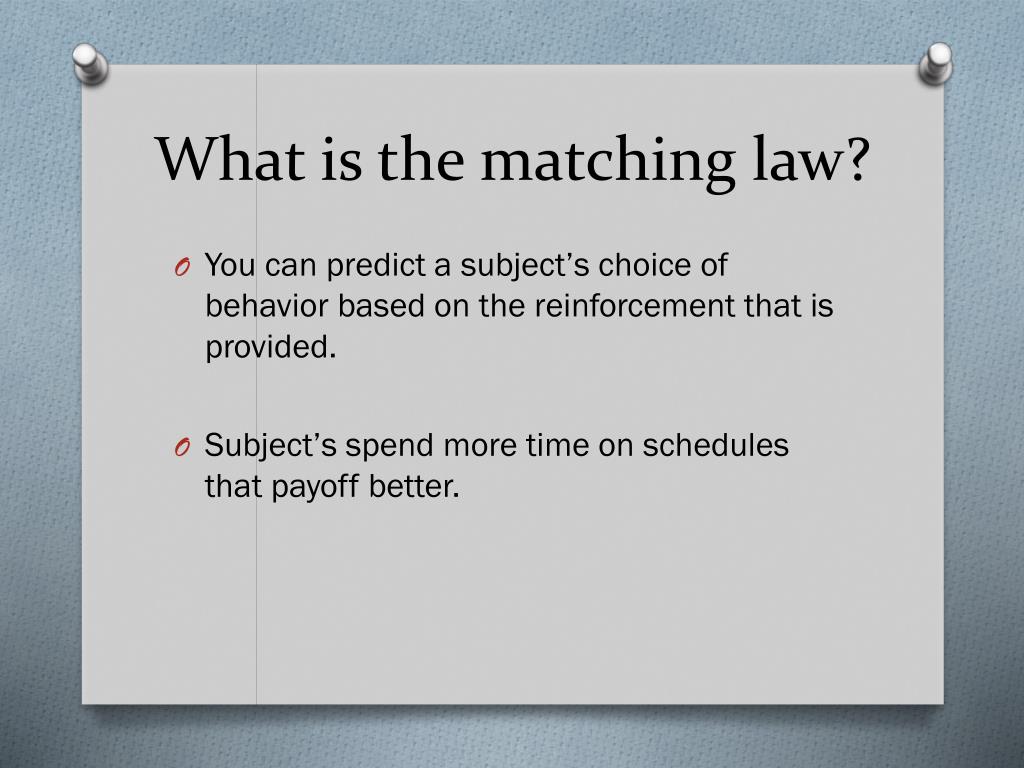Post 2 | Matching Law

The Matching Law is said to be the most significant contending logical record of decision behavior. It sees decision not only as a solitary occasion or an inward procedure of the creature yet as a pace of discernible occasions after some time. It expresses that as opposed to augmenting utility, the living being apportions its conduct over different exercises in definite extent to the worth got from every movement. It contrasts very subtle, yet essentially from sound decision hypothesis in its forecasts of how individuals strive control, for instance, how they conclude whether to swear off quick joys for bigger yet deferred rewards. It gives, through the way of hedonism theory, an amazing clarification of liquor and opiate habit. It can likewise be utilized to clarify natural marvels, for example, hereditary determination and scavenging conduct, just as monetary dynamic.
The Matching law is hypothetically significant for two reasons. To start with, it offers a straightforward measurement of conduct which is fit for augmentation to various different circumstances. Secondly, it seems to offer a legitimate, prescient record of decision. It consequently challenges any thought of free will. This test is just genuine if the extent of the coordinating law can be reached out to people.
It can also be expressed in the form of an equation as shown below.

Source:
https://psychology.wikia.org/wiki/Matching_law

The Matching Law theory states we match our behavior to the reinforcement available for each response. We behave in a way which we think will get us the maximum possible reward. What I find most interesting about the matching law is that it is in fact based off of a math equation. That goes to show all subjects have a way to intertwine with one another to provide us more information in research.
ReplyDelete